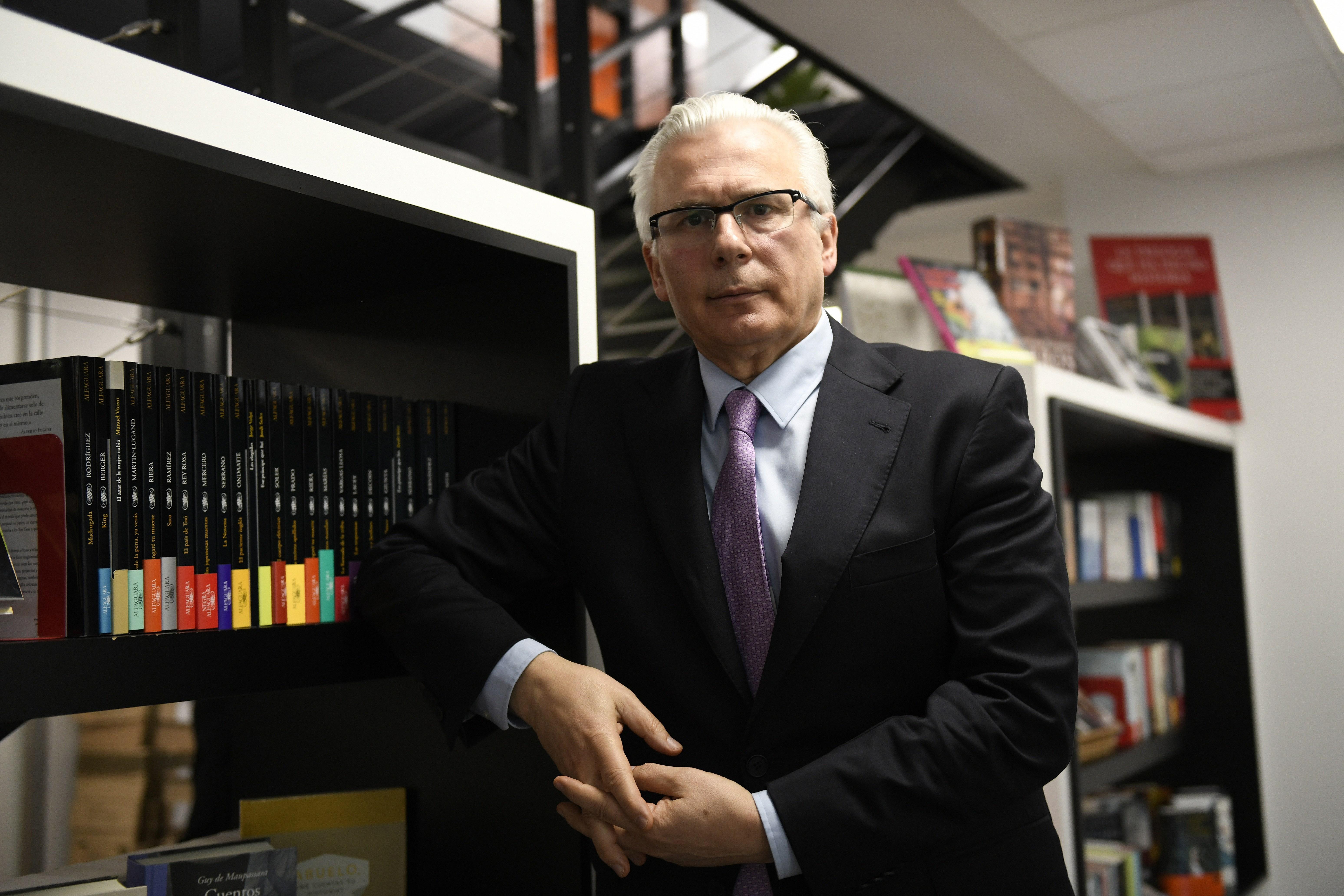Judge Baltasar Garzón was as clear as a bell: "Of course there is lawfare in Spain." This was what the formerly prominent Spanish judge stated this Wednesday at the opening of the 14th edition of the International Seminar on Critical Theory in Human Rights held at the Pablo de Olavide University in Sevilla, where he referred to one of the key issues of current Spanish and Catalan politics - with the moves being made by Manuel García-Castellón in the background. In fact, Garzón's statements take place a few days after Spain's third deputy PM, Teresa Ribera, directly questioned the Tsunami Democràtic judge: "He always leans in the same direction."
"Many make expression of horror when there is talk of lawfare in the Spanish justice system... well, of course there is lawfare, here, as in Brazil, and if not, they should tell president Lula about it," said the ex-judge of the National Audience, the newspaper eldiario.es reported. And he added: "Justice cannot be instrumentalized to take the line of a given political interest or for political persecution of any degree, and not to do so when it is in defence of the victims." Thus, Garzón's analysis linked with the issue of historical remembrance as well as compliance with international humanitarian law. "In Spain there has been no transitional justice, but there wasn't justice for Franco-era crimes either. (...) There is not even truth or remembrance built from within the institutions or with an accepted narrative until, at least, the year 2007 when the first law of remembrance was passed", he stated.
Spanish justice and historical remembrance
The judge also considered that another pending issue is that "there has to a large extent been no reparation". "It has been partial and not with the concept or extension that the expression implies within the terminology of international law," he stated, adding that "this is the core of the matter, how a system treats the victims for whom the state itself was the origin, or the cause of their injuries or the impunity of the crimes". "And the question is why it has never been done in Spain. The answer is that the judiciary has not wanted to do it because it is full of Francoist conceptions in all areas," he asserted. And thus he affirmed that "it is about providing justice in favour of the victims", something that "would not be outrageous because it is protected by international law and the victims are expecting it." However, "there is no will in the judiciary for that to change," he lamented.
"Spain is, in any case, a very bad example of everything that should not be done," said Garzón, who added that the state has a "problem": that there are "public representatives who think that there are first-class victims, others of second-class and others who do not exist, who are those of the Franco regime". "The victims are the core and the right to the truth does not have an expiry date, the only thing that is needed in Spain is to apply the law," he stated. He also affirmed that "transitional justice is an antidote in times of denial, but the first thing to do is assume that the events occurred and that the violation of the people affected occurred." "The problem is when the denial is transferred to the moment in which the events occur and there is debate on whether they occurred or not, as happens in this country," he said. Finally, he pointed out that "in Spain there is a judicial tendency to be ultra-positivist and ultra-nationalist in the interpretation of international human rights law and international humanitarian law, which is scarcely applied at all." "The amnesty law of 1977 does not prevent judging [what happened], I deny that extent, it's not true," he concludes, saying that "we are facing crimes against humanity and systematic violations of human rights."
National Audience judge Baltasar Garzón became something of a celebrity in the 1990s and 2000s for the zeal with which he took on cases related to ETA terrorism, corruption and organized crime: he acquired the nickname of "Supergarzón" in Spain. Internationally, he is well-known for the international arrest warrant he issued for Chilean dictator Augusto Pinochet, which led to an unsuccessful deportation hearing in the UK. He was convicted of illegal wiretapping in 2012 and disbarred for 11 years.

